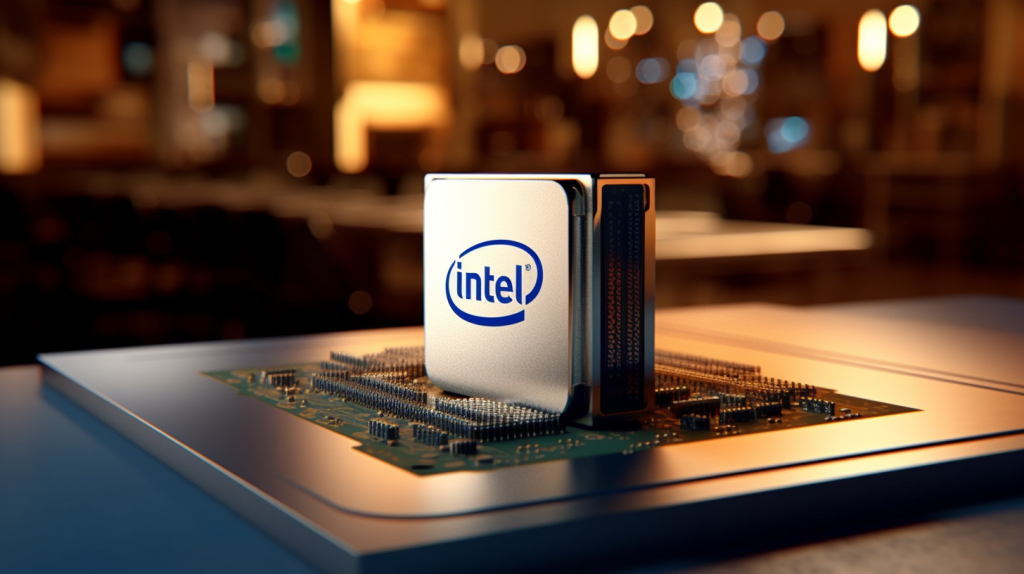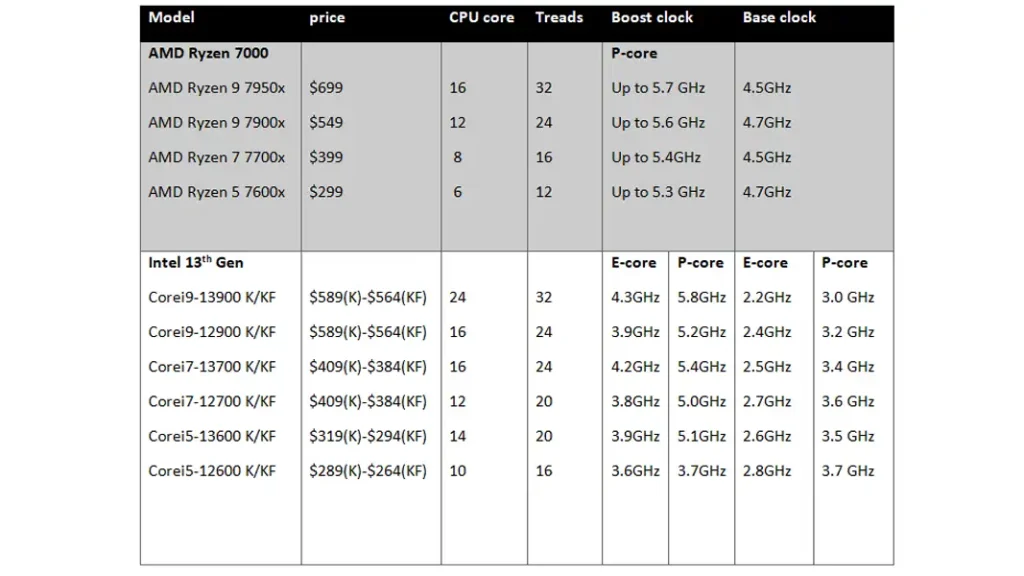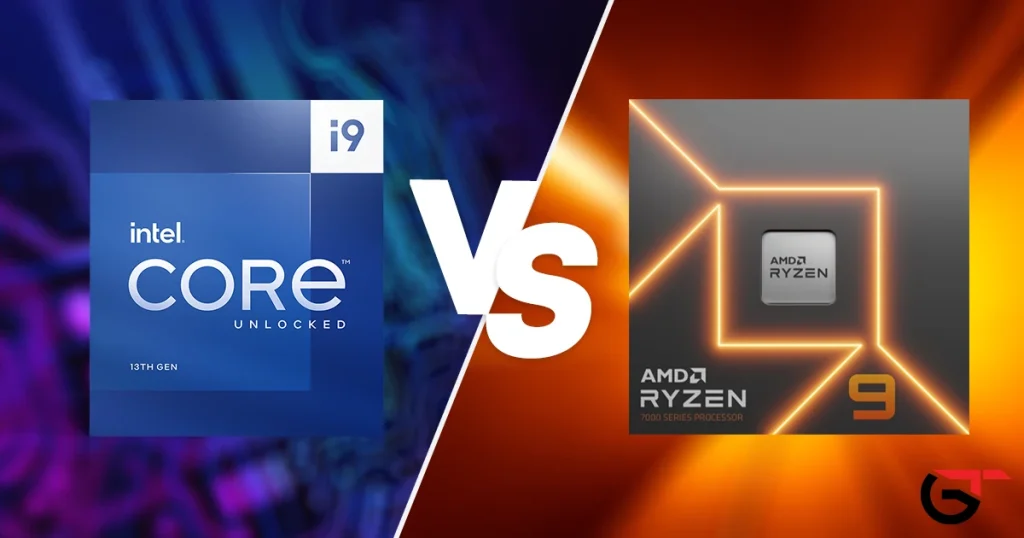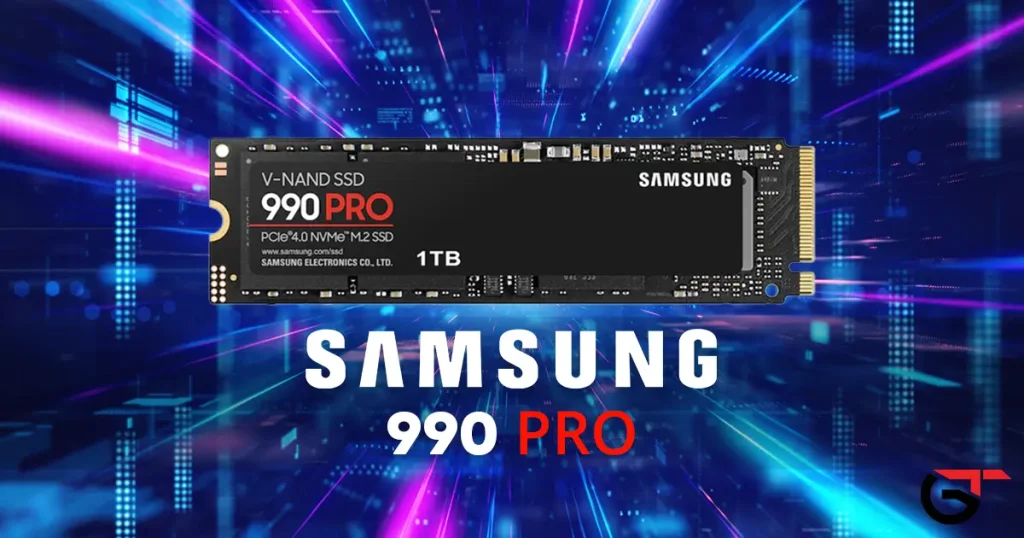If you want to learn about the latest processor, you can collect everything here.
AMD released the latest four processors & Intel has released the latest six processors. Both the processors are made with PCle 5.0 bandwidth standard, and PCle 5.0 support with DDR5 RAM.DDR4 memory is supported with Intel’s Raptor Lake. Both processers receive a fantastic performance, but they ran hot and were power-hungry.
| AMD Ryzen 7000 Series | Intel 13th Gen Processor Series |
| AMD Ryzen 9 7950x | Corei9-13900 K/KF |
| AMD Ryzen 9 7900x | Corei9-12900 K/KF |
| AMD Ryzen 7 7700x | Corei7-13700 K/KF |
| AMD Ryzen 5 7600x | Corei7-12700 K/KF |
| Corei5-13600 K/KF | |
| Corei5-12600 K/KF |
At a glance
| AMD Ryzen 7000 series | Intel 13th gen processors |
| Up to 16 cores and 32 treads | Up to 24 cores and 32 treads |
| The fastest gaming CPU-AMD Ryzen 9 7950X | The fastest gaming CPU-Intel core i9 13900K |
| 5.7GHzclock speed | 5.8GHz clock speed on the p-cores |
| DDR5-5200 support | DDR4-3200 and DDR5-5600 support |
| PCle 5.0(Up to 24 lanes) support | PCle 4.0(up to 4 lanes) and PCle 5.00(up to 16 lanes) support |
| P (performance) cores, graphics, X670 and X670E | P(performance)-cores, E(efficient)-Cores, graphics, Z690 and Z790 chipset |
| XMP 3.0 Support | XMP 3.0 support |
| AMD Wi-Fi 6E | Intel killer Wi-Fi 6E |
AMD Ryzen 7000
AMD Ryzen 7000 series is the world’s fastest gaming processor. AMD has introduced 3D V cache technology for competitive gamers, Zen 4 cores, Expo technology, Ryzen master, Partner memory kits, high-performance CPU cooler, and the storage device with maximum memory bandwidth with the new line-up. AMD Ryzen 7000 latest processors have featured AMD RadeonTM Graphics. AMD Ryzen 7000 has only performance cores (P-Core). AMD Ryzen 7000’s starting price is $299 for the Ryzen 5 7600x and $699 for the Ryzen 9 7950x.
| Model | Price |
| AMD Ryzen 9 7950x | $699 |
| AMD Ryzen 9 7900x | $549 |
| AMD Ryzen 7 7700x | $399 |
| AMD Ryzen 5 7600x | $299 |
Intel 13th Gen-Raptor Lake
Intel 13th gen processors have included special things, including a 6.0 GHZ peak boost clock,15% gain in single-treaded performance, 41% gain in multi-treaded performance, the best CPU for gaming and a 10nm process node. Intel’s 13th Gen Raptor Lake family has performance cores(p- cores) and Efficient cores (E-cores). They are called Raptor Lake Family. They have used the same socket for the Raptor Lake that it had included in Alder Lake, and the hybrid system has been used again.
| Model | Price |
| Corei9-13900K/KF | $589(K)-$564(KF) |
| Corei9-12900 K/KF | $589(K)-$564(KF) |
| Corei7-13700 K/KF | $409(K)-$384(KF) |
| Corei7-12700 K/KF | $409(K)-$384(KF) |
| Corei5-13600 K/KF | $319(K)-$294(KF) |
| Corei5-12600 K/KF | $289(K)-$264(KF) |

AMD Ryzen 7000 vs Raptor Lake: Which is Faster?
Raptor Lake is faster than Ryzen 7000 from mainstream to enthusiast-level. They have featured cores and threads and slightly higher boost clock speeds.
Which is cheaper AMD Ryzen 7000 Intel 13th Gen?
AMD Ryzen 7000’s chipset is cheaper than Intel 13th Gen. AMD 5600X launched at the Same $299 price point, and the new mainstream chip remains at the same rate.
Is it worth buying AMD Ryzen 7000?
AMD Ryzen 7000 has great chips for gaming and working. These chips run on the Zen 4 architecture and use a new AM5 socket.
How much RAM does AMD Ryzen 7000 support?
AMD’s Ryzen 7000 chips only support DDR5, but Intel’s Raptor Lake supports DDR4 and DDR5.
Is Intel Raptor Lake worth it?
Intel’s Raptor Lake offers the fastest performance in gaming and productivity at prices more than the competition.
Is AMD Ryzen 7000 better than Intel 13th gen?
Intel’s 13 th gen Raptor Lake processors are faster than AMD’s Ryzen 7000 processors. AMD Ryzen 7000 is better than Intel 13 th gen chips.

AMD Ryzen 7000
Pros:
- 8 cores, 16 threads
- Great gaming performance
- Better value than 7700X
Cons:
- Expensive
- Fewer cores than Intel
- No DDR4 RAM support
- No DDR4 RAM support
Intel 13th Gen Processor
Pros:
- Improved CPU performance for gaming
- Better performance than their predecessors.
- Potential improvements in clock speed, core count, and power efficiency.
- Advanced technology
- The latest advancements in chip architecture
- Better manufacturing processes
- Improvements in performance,
- Improvements in power consumption
- Improvements of performance in heat dissipation.
- Compatibility
Cons:
- more expensive
- Require additional investment in hardware or software updates
- Competition





